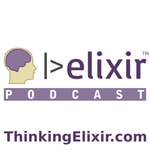Hanselminutes with Scott Hanselman – Details, episodes & analysis
Podcast details
Technical and general information from the podcast's RSS feed.

Hanselminutes with Scott Hanselman
Scott Hanselman
Frequency: 1 episode/7d. Total Eps: 997

Recent rankings
Latest chart positions across Apple Podcasts and Spotify rankings.
Apple Podcasts
🇩🇪 Germany - technology
23/06/2025#93🇬🇧 Great Britain - technology
18/05/2025#74🇬🇧 Great Britain - technology
14/05/2025#91🇬🇧 Great Britain - technology
18/01/2025#76🇬🇧 Great Britain - technology
17/01/2025#61🇨🇦 Canada - technology
13/01/2025#81🇨🇦 Canada - technology
09/01/2025#100🇩🇪 Germany - technology
31/12/2024#87🇨🇦 Canada - technology
25/12/2024#93🇫🇷 France - technology
05/12/2024#73
Spotify
No recent rankings available
Shared links between episodes and podcasts
Links found in episode descriptions and other podcasts that share them.
See all- https://www.sagaftrastrike.org/
129 shares
- https://www.specialeffect.org.uk/
110 shares
- https://www.kaggle.com/
57 shares
- https://twitter.com/b0rk
9 shares
- https://twitter.com/reg_inee
7 shares
RSS feed quality and score
Technical evaluation of the podcast's RSS feed quality and structure.
See allScore global : 48%
Publication history
Monthly episode publishing history over the past years.
Snapdragon is the future with Qualcomm's Leendert van Doorn
Episode 962
jeudi 12 septembre 2024 • Duration 32:13
In this episode, Leendert van Doorn discusses the future of Snapdragon technology and its potential to revolutionize various industries. Snapdragon processors are known for their high performance and efficiency, making them a popular choice for smartphones, tablets, and other devices. Van Doorn highlights how Qualcomm is pushing the boundaries of what’s possible with Snapdragon, focusing on advancements in AI, connectivity, and power efficiency. He chats with Scott about his passion for this space, and how Qualcomm Snapdragon powers the AI and more in the new Windows Copilot+ PCs!
AI Storytelling with Michael Washington
Episode 961
jeudi 5 septembre 2024 • Duration 32:42
Michael Washington doesn't want AI to write the Great American novel, he wants YOU to write the Great American novel faster and easier. He's created AIStoryBuilders To help you break your stories down into timelines, locations, and characters. He sits down with Scott to talk about how he wrote this application, where retrieval augmented generation comes in, and how he wrote it with web assembly in mind to avoid having to deal with app stores while still having a mobile version.
Introducing .NET Aspire with Damian Edwards
Episode 952
jeudi 4 juillet 2024 • Duration 35:29
.NET Aspire has folks talking - but why? What is .NET Aspire and what does it me for the average ASP.NET developer like me? Is it a thing for Kubernetes? Is it just for .NET Devs? Scott sits down with Damian Edwards to get a sense of what .NET Aspire ahem aspires to do, and where it's heading.
Engineering Leadership and Refactoring Monoliths with Kirsten Westeinde
Episode 862
jeudi 13 octobre 2022 • Duration 33:00
Kirsten Westeinde is a technology enthusiast and a lifelong learner. She is a development manager at Shopify, where she solves challenging web development problems every day. She talks with Scott about her career at Shopify moving from Software Developer to Senior Software Development Manager. They also chat about the Shopify's Journey from Monolith...to something different!
Sonic Pi Live Coding Music Synth with Sam Aaron
Episode 861
jeudi 6 octobre 2022 • Duration 35:41
Sonic Pi is a new kind of musical instrument which enables exciting new learning pathways in the classroom! Not only can you create music quickly and "live code" your music to change when performing, but you can also use Sonic Pi as a way to learn coding in a more creative way rather than focusing on abstract concepts or working with data.
C64 OS - A new operating system for the Commodore 64 with Gregory Naçu
Episode 860
jeudi 29 septembre 2022 • Duration 37:25
C64 OS has one goal. Make a Commodore 64 feel fast and useful in today’s modern world. It's a very high bar. The C64 was introduced in 1982 and has an 8-bit, 1MHz, 6510 CPU with just 64 kilobytes of directly addressable memory. It has a screen resolution of 320x200 pixels, and a fixed palette of 16 colors. But, it is an incredibly versatile machine. And it enjoys an active userbase and a great variety of modern hardware expansions. How did Gregory Naçu do it in 2022?
Buy https://c64os.com now!
Why the C64 Demoscene matters with Clay Token's Bilgem Çakır
Episode 859
jeudi 22 septembre 2022 • Duration 39:06
The demoscene is an international computer art subculture focused on producing demos: self-contained, sometimes extremely small, computer programs that produce audiovisual presentations. When was the last time you coded something that fit in 4k? How about just 1024 bytes? Bilgem Çakır is one of many folks still making the Commodore 64 sing and do things you'd never expect, 40 years after the computer was released. Why is this kind of coding important or interesting in 2022? Bilgem offers his perspective as game studio CTO, long time demoscener, and C64 demo record holder.
This episode is sponsored by BetterHelp. Give online therapy a try at http://betterhelp.com/hanselminutes and get on your way to being your best self.
Learning to code 6502 assembly in Pikuma's Gustavo Pezzi
Episode 858
jeudi 15 septembre 2022 • Duration 33:50
Gustavo Pezzi wants to teach YOU (and everyone) how to code...in 6502 assembly on 40 year old machines! There's something amazing about coding on the absolute metal and owning the entire machine/stack. https://pikuma.com teaches the learn the fundamentals of computer science and mathematics in creative and dynamic ways using older game consoles and teaches things like graphics and physics without large frameworks.
Creating Tech Courseware with Lemonerdy's teen CEO Eden Wilson
Episode 857
jeudi 8 septembre 2022 • Duration 31:31
Building and Scaling Geo-Distributed Cloud Apps with Denis Magda
Episode 856
jeudi 1 septembre 2022 • Duration 37:17
Denis started at Sun Microsystems and Oracle where he worked on JVM/JDK and led one of the Java development groups. After learning Java from the inside, he joined the world of distributed systems and databases, where he's remained ever since. He talks to Scott about how to build large horizontal cloud apps that are geo-distributed and truly global.
Cloud availability zones and regions are not immune to outages. The zones go down regularly, and regions become unavailable during natural disasters or human-caused incidents. If an availability zone or a larger area goes down, so does your application…unless the application functions across multiple geographic locations. We'll discuss availability and reliability patterns used by architects whose apps managed to withstand major cloud outages.









